Designing, implementing, and sustaining a global ocean observing system that responds to the requirements of multiple stakeholders for ocean data and information requires international partnerships and a framework for international ocean governance. This in turn, allows national and regional activities to plug-in into a coordinated global network, to create a comprehensive and interoperable global system.
Today, 60% of the oceans are outside the borders of national jurisdiction. This implies a shared international responsibility. Under the overarching UN Convention on the Law of the Sea, a plethora of jurisdictional rights, institutions, and specific frameworks have been set up to organise the way humans use these waters. – EC Directorate for Maritime Affairs and Fisheries
The European Union plays a leading role in international decision-making bodies, programmes and partnerships working to improve the coordination and governance of the global ocean observing system. This in turn contributes to improving coverage, quality and capacity of global ocean observations for better monitoring of ocean health, climate change, marine pollution, sustainable exploitation of the maritime resources and maritime security for both Europe and the world.
THE EU4OceanObs Action seeks to strengthen the EU’s participation and influence in two overarching international partnerships:
- the G7, through the G7 Future of the Seas and Oceans Initiative (FSOI)
- and the Group on Earth Observations (GEO) through the GEO Blue Planet Initiative.
These two partnerships represent the upstream and the downstream ends of the global ocean observing value chain. The G7 FSOI works ‘upstream’ to generate the data required to meet global policy directives and to make the data findable, accessible, interoperable, and reusable. The GEO Blue Planet action works ‘downstream’ to promote and demonstrate the use of ocean observations for marine and maritime applications. Through its direct interaction with stakeholders, GEO Blue Planet serves as an important feed-back loop to observing system design to ensure that the system is fit-for-purpose.
The EU4OceanObs action coordinators of each partnership will work together and in close collaboration with the main international decision-making bodies and programmes, the EU observing and data infrastructures and projects (EuroArgo, EuroFleets+, EMBRC, Copernicus Marine Service, EMODnet, Blue-Cloud, etc.) along the value chain. In doing so, EU4OceanObs will ensure that the EU’s contribution to the global ocean observing system is a comprehensive and seamless end-to-end service that promotes and supports international efforts.
EU4OceanObs, through its G7 FSOI and GEO Blue Planet actions, will contribute to the following EU and international governing bodies, partnerships and programmes:





